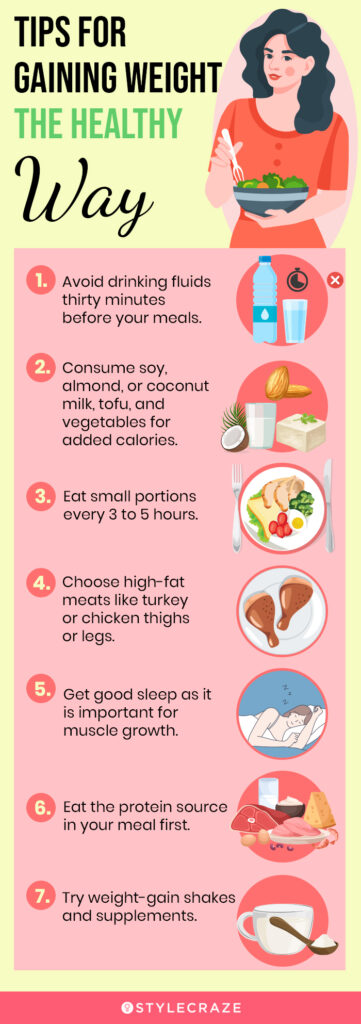Are you tired of struggling to gain weight despite having a high metabolism? In this article, we will explore some effective ways to help you achieve your weight gain goals. Many people with fast metabolisms find it challenging to put on weight, but with the right strategies, it is possible to tip the scales in your favor. From adjusting your diet to incorporating strength training exercises, we will provide you with practical tips that can help you on your journey to a healthier weight. Say goodbye to frustration and hello to a more confident, stronger you.

Understanding High Metabolism
Definition of high metabolism
High metabolism refers to the rate at which your body burns calories to produce energy. It is determined by various factors such as genetics, age, body composition, and physical activity level. Individuals with high metabolism often find it challenging to gain weight because their bodies naturally burn calories at a faster rate.
Causes of high metabolism
There are several factors that contribute to a high metabolism. Genetics play a significant role, as some people inherit a faster metabolic rate from their parents. Age also affects metabolism, as it tends to slow down as we get older. Additionally, having a higher muscle mass can increase metabolism since muscles burn more calories than fat. Lastly, physical activity level plays a crucial part – regular exercise and an active lifestyle can lead to a higher metabolic rate.
Impact of high metabolism on weight gain
Having a high metabolism can make it more difficult to gain weight, as your body burns through calories quickly. This means that even if you consume a large amount of food, you may struggle to maintain a caloric surplus necessary for weight gain. It’s important to understand this impact so that you can make informed choices about your diet and lifestyle to support healthy weight gain.
Consulting a Healthcare Professional
Importance of professional guidance
When dealing with a high metabolism and weight gain, it is essential to seek professional guidance from a healthcare professional, such as a doctor or a registered dietitian. They can provide personalized advice based on your specific needs, medical history, and goals. Professional guidance ensures that you approach weight gain in a safe and healthy manner.
Identifying underlying health conditions
A healthcare professional can help identify any underlying health conditions that may be affecting your metabolism and weight gain. Conditions such as hyperthyroidism or hormonal imbalances can contribute to a high metabolism. By addressing these conditions, you can optimize your metabolic function and make weight gain more achievable.
Hormonal imbalances and metabolism
Hormonal imbalances, such as an overactive thyroid gland or an excess of certain hormones, can significantly impact your metabolism. These imbalances can cause your body to burn calories at a faster rate, making it challenging to gain weight. A healthcare professional can conduct tests and provide appropriate treatment or management plans to address the hormonal imbalances and support healthy weight gain.
Evaluation of dietary and lifestyle habits
A healthcare professional can evaluate your current dietary and lifestyle habits to identify any areas that may be hindering your weight gain efforts. They can assess your caloric intake, nutrient balance, meal frequency, and physical activity level to determine the necessary adjustments for achieving a caloric surplus and promoting weight gain. Their expertise and guidance can help you create an effective plan tailored to your unique needs.
Creating a Calorie Surplus
Understanding calorie surplus
To gain weight, regardless of metabolism, you need to consume more calories than your body burns. This is known as a calorie surplus. A calorie surplus provides the extra energy your body needs to build muscle and ultimately leads to weight gain. It’s important to note that a calorie surplus should be achieved through a balanced diet and not through unhealthy or excessive consumption of processed foods.
Calculating daily caloric needs
To determine your daily caloric needs, you need to consider your basal metabolic rate (BMR) – the number of calories your body needs to maintain basic bodily functions at rest – and your activity level. Online calculators or assistance from a healthcare professional can help you estimate your daily caloric needs. Once you have this estimation, you can then create a plan to consume a surplus of calories.
Choosing nutrient-dense foods
When aiming to create a calorie surplus, it’s crucial to prioritize nutrient-dense foods. These are foods that provide a high amount of essential nutrients, such as vitamins, minerals, and antioxidants, in addition to calories. Opt for whole grains, lean proteins, fruits, vegetables, and healthy fats. These foods not only contribute to weight gain but also promote overall health and well-being.
Optimizing meal frequency and portion sizes
To achieve a calorie surplus, it can be beneficial to increase your meal frequency and portion sizes. Instead of three large meals, consider spreading your food intake throughout the day with five to six smaller meals or snacks. This approach ensures a steady supply of nutrients and calories to support weight gain. Additionally, gradually increasing portion sizes can help you meet your caloric goals without feeling overwhelmed by large meals.
Tracking calorie intake
Tracking your calorie intake can be a helpful tool for ensuring you consistently consume a surplus. Use apps or food journals to keep track of what you eat and calculate the total calories. This helps you monitor your progress and adjust your diet accordingly. It’s important to remember that weight gain should be gradual and sustainable – aim for a moderate surplus of 300-500 extra calories per day for healthy weight gain.
Importance of Protein Intake
Role of protein in weight gain
Protein plays a crucial role in weight gain as it is the building block for muscle growth and repair. Consuming an adequate amount of protein helps support muscle development, which contributes to weight gain. Additionally, protein has a higher thermic effect, meaning it requires more energy to digest compared to fats and carbohydrates, thus boosting metabolism. Including enough protein in your diet is essential for achieving healthy weight gain.
Calculating protein requirements
The recommended protein intake varies depending on factors such as age, sex, weight, and physical activity level. As a general guideline, aim for 0.8-1 gram of protein per pound of bodyweight. For example, if you weigh 150 pounds, you should consume approximately 120-150 grams of protein per day. Consulting with a healthcare professional or registered dietitian can help you determine the optimal protein intake for your specific needs.
Sources of high-quality protein
To meet your protein requirements, focus on incorporating high-quality sources into your diet. These include lean meats, poultry, fish, eggs, dairy products, legumes, nuts, and seeds. These foods not only provide protein but also offer essential vitamins, minerals, and healthy fats. Aim for a variety of protein sources to ensure you receive a broad range of nutrients necessary for overall health and weight gain.
Incorporating protein into each meal
To maximize the benefits of protein, aim to include it in each meal and snack. Distributing protein throughout the day helps your body continuously receive the necessary amino acids for muscle growth and repair. Include protein-rich foods such as eggs or Greek yogurt at breakfast, lean meats or legumes at lunch and dinner, and incorporate protein-rich snacks like nuts or protein bars between meals.
Supplementing with protein shakes
In some cases, meeting your protein requirements through whole foods alone can be challenging. This is where protein shakes can be beneficial. Protein shakes provide a convenient and efficient way to boost your protein intake. They can be consumed as a standalone snack or added to smoothies or recipes. However, it’s important to consult with a healthcare professional or registered dietitian before incorporating protein shakes into your routine.

Optimizing Carbohydrate Consumption
Understanding the role of carbohydrates
Carbohydrates are the body’s primary source of energy. They provide glucose, which fuels various bodily functions and physical activity. When aiming for weight gain, it’s important to optimize carbohydrate consumption to ensure you have enough energy to support muscle growth and physical performance.
Choosing complex carbohydrates over simple sugars
Complex carbohydrates, such as whole grains, fruits, vegetables, and legumes, are a more favorable choice when compared to simple sugars. Complex carbohydrates provide a steady release of glucose and are rich in fiber, vitamins, and minerals. They provide sustained energy, promote satiety, and contribute to overall health. Limit your intake of refined sugars and processed foods to prevent spikes in blood sugar levels.
Balancing carbohydrate and protein intake
To optimize weight gain and muscle development, it’s crucial to strike a balance between carbohydrate and protein intake. Carbohydrates provide energy for workouts and replenish glycogen stores, while protein supports muscle growth and repair. Aim to consume a moderate amount of carbohydrates alongside an adequate protein intake to ensure you’re adequately fueling your body for both exercise and recovery.
Timing carbohydrate consumption
Timing your carbohydrate consumption strategically can be beneficial for weight gain and muscle development. Consuming a higher amount of carbohydrates before and after workouts supports energy levels and muscle recovery. Prioritize carbohydrates that provide sustained energy, such as whole grains, fruits, and vegetables. Consider including a carbohydrate-rich snack or meal within an hour before and after your workout.
Including whole grain options
When choosing carbohydrates, opt for whole grain options whenever possible. Whole grains contain the entire grain kernel, providing more fiber, vitamins, minerals, and antioxidants compared to refined grains. Examples of whole grains include brown rice, whole wheat bread, quinoa, oats, and barley. Including whole grains in your diet not only supports weight gain but also contributes to heart health and overall well-being.
Including Healthy Fats
Benefits of incorporating healthy fats
Including healthy fats in your diet can be beneficial for weight gain. Fats are a concentrated source of calories, providing more than double the calories of proteins and carbohydrates. They help you meet your caloric surplus requirements effectively. Healthy fats also play a vital role in hormone production, nutrient absorption, and supporting cellular function.
Identifying sources of healthy fats
To incorporate healthy fats into your diet, focus on sources such as avocados, nuts, seeds, olive oil, coconut oil, and fatty fish like salmon or sardines. These foods provide essential fatty acids, such as omega-3 and omega-6, which have numerous health benefits. Including a variety of healthy fats in your meals and snacks enhances taste, satiety, and overall nutrient intake.
Balancing omega-3 and omega-6 fatty acids
Balancing your intake of omega-3 and omega-6 fatty acids is crucial for overall health. While both are essential, the typical Western diet often includes an excess of omega-6 fatty acids, which can lead to inflammation. To achieve a healthier balance, prioritize sources of omega-3 fatty acids, such as fatty fish, flaxseeds, and chia seeds, while moderating your intake of omega-6 sources like vegetable oils.
Limiting trans fats and saturated fats
While healthy fats are beneficial, it’s important to limit unhealthy fats such as trans fats and saturated fats. Trans fats, commonly found in processed foods and baked goods, can increase the risk of heart disease and negatively impact overall health. Saturated fats, mainly found in animal-based products and tropical oils, should also be consumed in moderation. Opt for leaner cuts of meat and healthier cooking oils to reduce your intake of these fats.
Monitoring fat intake
While incorporating healthy fats is essential for weight gain, it is crucial to monitor your fat intake to ensure a proper balance with other macronutrients. Fats have more than double the calories of proteins and carbohydrates, so exceeding your fat intake excessively can hinder your weight gain goals. Moderation is key, and consulting with a healthcare professional or registered dietitian can help you determine the appropriate amount of fat for your individual needs.

Resistance Training for Muscle Growth
Understanding the importance of resistance training
Resistance training, also known as strength training or weightlifting, is crucial for muscle growth when aiming to gain weight. It stimulates muscle fibers, promoting hypertrophy (muscle growth) and strength development. Incorporating resistance training into your routine helps you build muscle mass, increase metabolism, and achieve a more balanced weight gain.
Designing a weightlifting program
To maximize the benefits of resistance training, it’s important to design a well-rounded weightlifting program. This program should include exercises targeting all major muscle groups, such as squats, deadlifts, bench presses, and rows. Consider working with a certified personal trainer who can create a program suitable for your fitness level, goals, and any specific needs or limitations you may have.
Compound exercises for overall muscle development
Compound exercises are multi-joint movements that engage multiple muscle groups simultaneously. Including compound exercises in your weightlifting program promotes overall muscle development and efficiency. Examples of compound exercises include squats, lunges, deadlifts, bench presses, shoulder presses, and pull-ups. These exercises target multiple muscles, leading to better muscle growth and improved functional strength.
Progressive overload and muscle stimulation
To continue making progress in your muscle growth journey, it’s crucial to incorporate progressive overload into your resistance training routine. Progressive overload involves gradually increasing the challenge placed on your muscles over time. This can be achieved by increasing weight, repetitions, or sets as you become stronger. This consistent stimulation is necessary to promote muscle growth and prevent plateaus.
Rest and recovery
While resistance training is essential for muscle growth, it’s equally important to prioritize rest and recovery. Muscles need time to repair and rebuild after intense workouts. Aim for at least one or two days of rest per week to allow your muscles to recover and grow stronger. Quality sleep, proper hydration, and a balanced diet also contribute to effective recovery. Remember, progress is not just made during workouts – it happens during periods of rest as well.
Eating Regularly and Snacking Appropriately
Importance of consistent meal timings
Establishing consistent meal timings is crucial when aiming to gain weight with a high metabolism. Regular meals help ensure a steady intake of calories and nutrients throughout the day. Make an effort to establish a routine by eating meals around the same times each day. This consistency helps regulate your metabolism and supports healthy weight gain.
Avoiding long gaps between meals
To avoid long gaps between meals, aim to eat every 2-3 hours. This helps maintain a constant supply of energy and prevents your body from entering a catabolic state, where it breaks down muscle tissue for fuel. Plan your meals and snacks accordingly to ensure you’re consuming calories consistently throughout the day, even if you need to pack portable snacks for when you’re on-the-go.
Healthy snack options for weight gain
Choosing healthy snack options is key for supporting weight gain. Opt for nutrient-dense snacks that provide a balance of macronutrients. Some examples include nuts and seeds, nut butter with whole grain crackers or fruit, Greek yogurt with berries, a protein shake, or a homemade trail mix. These snack options are rich in calories, protein, healthy fats, and fiber, making them ideal for supporting weight gain.
Planning meals in advance
Meal planning can be a helpful strategy to ensure you have the necessary foods available to support weight gain. Set aside time each week to plan your meals and create a grocery list. This allows you to stock up on nutritious ingredients and prepare meals in advance. Having meals prepared ahead of time eliminates the stress of deciding what to eat and ensures you’re consistently meeting your caloric goals.
Avoiding excessive snacking
While regular snacking is important for weight gain, it’s crucial to avoid excessive snacking, especially on unhealthy or calorie-dense foods. Mindless snacking can lead to excessive calorie intake and hinder your progress. Stick to planned snacks that align with your nutritional needs and goals. Moderation is key to avoid unnecessary weight gain or negatively impacting your overall health.

Monitoring and Adjusting Progress
Regularly tracking weight and body measurements
Monitoring your weight and body measurements is crucial for evaluating your progress in gaining weight with a high metabolism. Regularly weigh yourself and take body measurements to assess any changes. Tracking these metrics allows you to observe trends and make appropriate adjustments to your diet, exercise, or overall approach to achieve your weight gain goals.
Monitoring changes in appetite and energy levels
Your appetite and energy levels are important indicators of your body’s response to your weight gain efforts. Pay attention to your hunger levels and any changes in energy throughout the day. If you’re consistently hungry or feel fatigued, it may indicate that you need to increase your caloric intake. On the other hand, if you’re feeling overly full or sluggish, you may need to optimize your nutrient timing or adjust your portion sizes.
Adjusting caloric intake based on progress
Based on your weight and body measurement analysis, you may need to adjust your caloric intake to ensure you’re consistently in a surplus. If you’re not seeing any weight gain over time, consider increasing your daily calorie intake by 100-200 calories and monitor the changes. It’s important to proceed with gradual adjustments to prevent excessive weight gain or discomfort. Consult with a healthcare professional or registered dietitian for personalized guidance.
Seeking professional advice for adjustments
When in doubt or facing challenges with your weight gain journey, seeking professional advice is essential. A healthcare professional or registered dietitian can provide personalized advice and make adjustments based on your specific needs. They can help you troubleshoot any obstacles and develop a plan that supports healthy weight gain and overall well-being.
Identifying obstacles and finding solutions
It’s common to face obstacles when trying to gain weight with a high metabolism. Identifying these obstacles and finding suitable solutions is crucial for overcoming them. Common obstacles may include a lack of appetite, difficulty consuming enough calories, or struggles with exercise consistency. Working with a healthcare professional or registered dietitian can help you navigate these challenges and provide effective strategies to overcome them.
Supplementing to Support Weight Gain
Understanding the role of supplements
Supplements can be a helpful addition to your weight gain journey with a high metabolism. However, it’s essential to understand that they should not replace a balanced diet but rather complement it. Supplements are intended to provide additional nutrients that may be challenging to obtain solely from food. Always consult with a healthcare professional before incorporating any supplements into your routine.
Protein and weight gainer supplements
Protein supplements, such as whey protein powder, can provide an effective way to boost your protein intake, especially when whole foods are unavailable or impractical. Weight gainer supplements, on the other hand, combine protein, carbohydrates, and fats to provide a higher calorie content per serving. These supplements can assist in meeting your daily caloric surplus goal, but they should be used strategically alongside a balanced diet.
Creatine and its impact on muscle mass
Creatine is a popular supplement used to enhance muscle strength and performance. It works by increasing the body’s ability to produce energy rapidly, particularly during high-intensity exercise. While creatine itself does not directly lead to weight gain, it can support muscle mass development, ultimately contributing to a more balanced weight gain. As with any supplement, consult with a healthcare professional before use.
Multivitamins for overall health
Multivitamins can be a valuable addition to ensure you’re meeting your micronutrient needs while gaining weight. When aiming to increase caloric intake, it’s essential to ensure you’re still obtaining all the necessary vitamins and minerals. However, it’s important to remember that supplements should not replace a well-rounded diet, as they cannot fully replicate the benefits of obtaining nutrients from whole foods.
Consulting with a healthcare professional before using supplements
Before incorporating any supplements into your weight gain routine, it’s crucial to consult with a healthcare professional. They can evaluate your individual needs, assess any potential interactions or contraindications, and provide recommendations based on your specific goals and health status. Professional guidance ensures that you choose supplements that are safe, effective, and suitable for your unique needs.
In conclusion, gaining weight with a high metabolism requires a strategic approach that involves understanding the role of metabolism, seeking professional guidance, creating a calorie surplus, optimizing macronutrient intake, engaging in resistance training, establishing healthy eating habits, and monitoring progress. By following these comprehensive guidelines and being patient with the process, you can effectively work towards achieving healthy weight gain and supporting your overall well-being. Remember, it’s important to consult with healthcare professionals throughout your journey for personalized advice tailored to your specific needs and circumstances.
